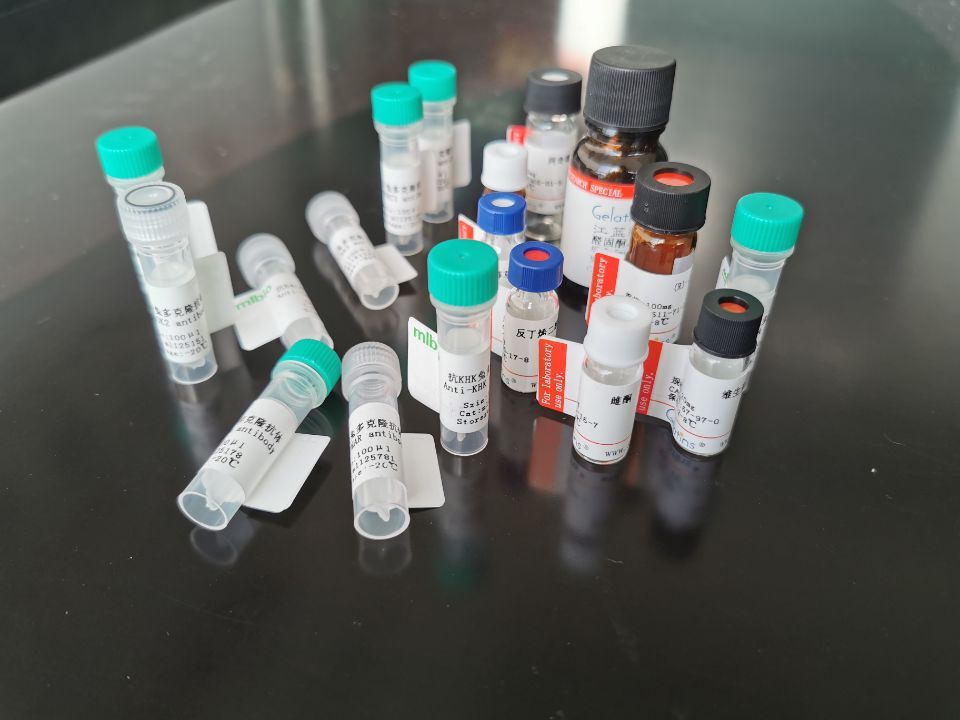中文名稱(chēng): LSM11 抗原(重組蛋白)
英文名稱(chēng): LSM11 Antigen (Recombinant Protein)
別 名: LSM11, U7 small nuclear RNA associated
相關(guān)類(lèi)別: 抗原
儲(chǔ) 存: 冷凍(-20℃)
概 述
|
Fusion protein corresponding to a region derived from 161-360 amino acids of human LSM11 |
|
Full name: |
LSM11, U7 small nuclear RNA associated |
|
Swissprot: |
P83369 |
|
Gene Accession: |
BC126449 |
|
Purity: |
>85%, as determined by Coomassie blue stained SDS-PAGE |
|
Expression system: |
Escherichia coli |
|
Tags: |
His tag C-Terminus, GST tag N-Terminus |
|
Background: |
Sm and Sm-like (LSm) proteins form donut-shaped, ubiquitously expressed heptameric complexes that are involved in various steps of RNA metabolism, including RNA-protein interactions and structural changes that are required during ribosomal subunit assembly. LSm11 is a 360 amino acid protein that localizes to the nucleus and belongs to the LSm subfamily of snRNP Sm proteins. Containing an N-terminal domain that is necessary for pre-mRNA cleavage, LSm11 functions to binds specifically to U7 snRNA and is thought to play a role in cell cycle regulation and cell growth. The gene encoding LSm11 maps to human chromosome 5, which contains 181 million base pairs and comprises nearly 6% of the human genome. Deletion of the p arm of chromosome 5 leads to Cri du chat syndrome, while deletion of the q arm or of chromosome 5 altogether is common in therapy-related acute myelogenous leukemias and myelodysplastic syndrome. |
 購(gòu)物車(chē)
購(gòu)物車(chē) 幫助
幫助
 021-54845833/15800441009
021-54845833/15800441009
